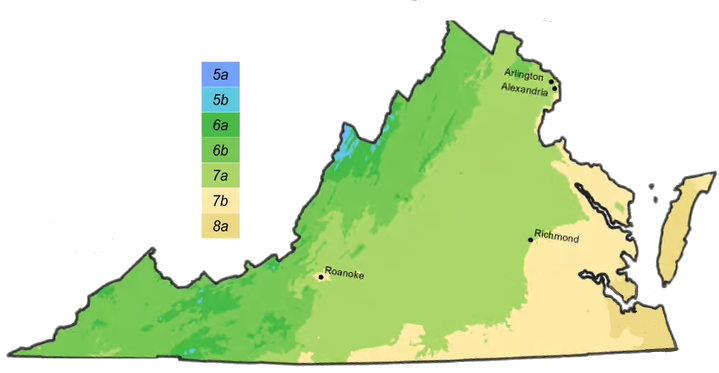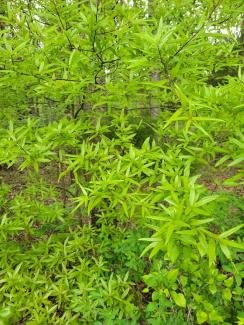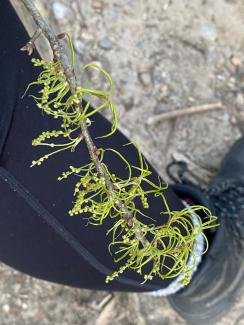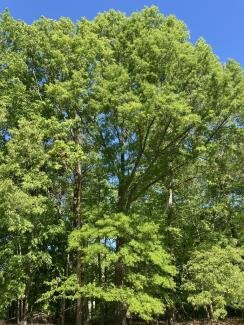
Habitat: bottomlands or low flatwoods and upland old fields
Wildlife value: High wildlife value for food and habitat. It supports a wide variety of butterflies and moths plus small mammals and songbirds. The Acorns are eaten by woodpeckers, blue joys, small mammals, wild turkeys, white-tailed deer, and black bear and are can be eaten by people after tannins are leached or boiled out. Plant NOVA Natives lists this species as particularly popular with the non-native honeybees
Notes: Very adaptible and handsome tree, easy to grow. Needs acid soils. Willow-like leaves require little raking. Great avenue tree
Edibility: Acorns (nuts) are edible after tannins are leached or boiled out.
Earth Sangha Inventory
Founded in 1997, the Earth Sangha is a nonprofit public charity based in the Washington, DC, region. The Wild Plant Nursery is the most comprehensive source of local-ecotype, native plants in the Washington DC region, and the region’s only facility dedicated exclusively to this type of propagation. “Local-ecotype” plants are propagated from local, wild, naturally-occurring populations and are well-adapted to local conditions and for wildlife species that depend on the local forms, such as pollinators. Inventory is updated on a weekly basis so number may not be accurate.
| Pots Available | Plugs Available | Location | Notes | ||
|---|---|---|---|---|---|
| 0 | 0 | Row 6 | View My Wishlist |
Beloved Brook's Ruckersville Nursery Inventory
Nursery is open by appointment only. Email them to set up a time. This plant list if from the begging of the 2025 season and may be outdated. If there is something specific that you’re looking for, they recommend you confirm that they have it when you schedule an appointment
| Pots Available | Plugs Available | Pot size: | ||
|---|---|---|---|---|
| Yes |
Gallon |
View My Wishlist |


